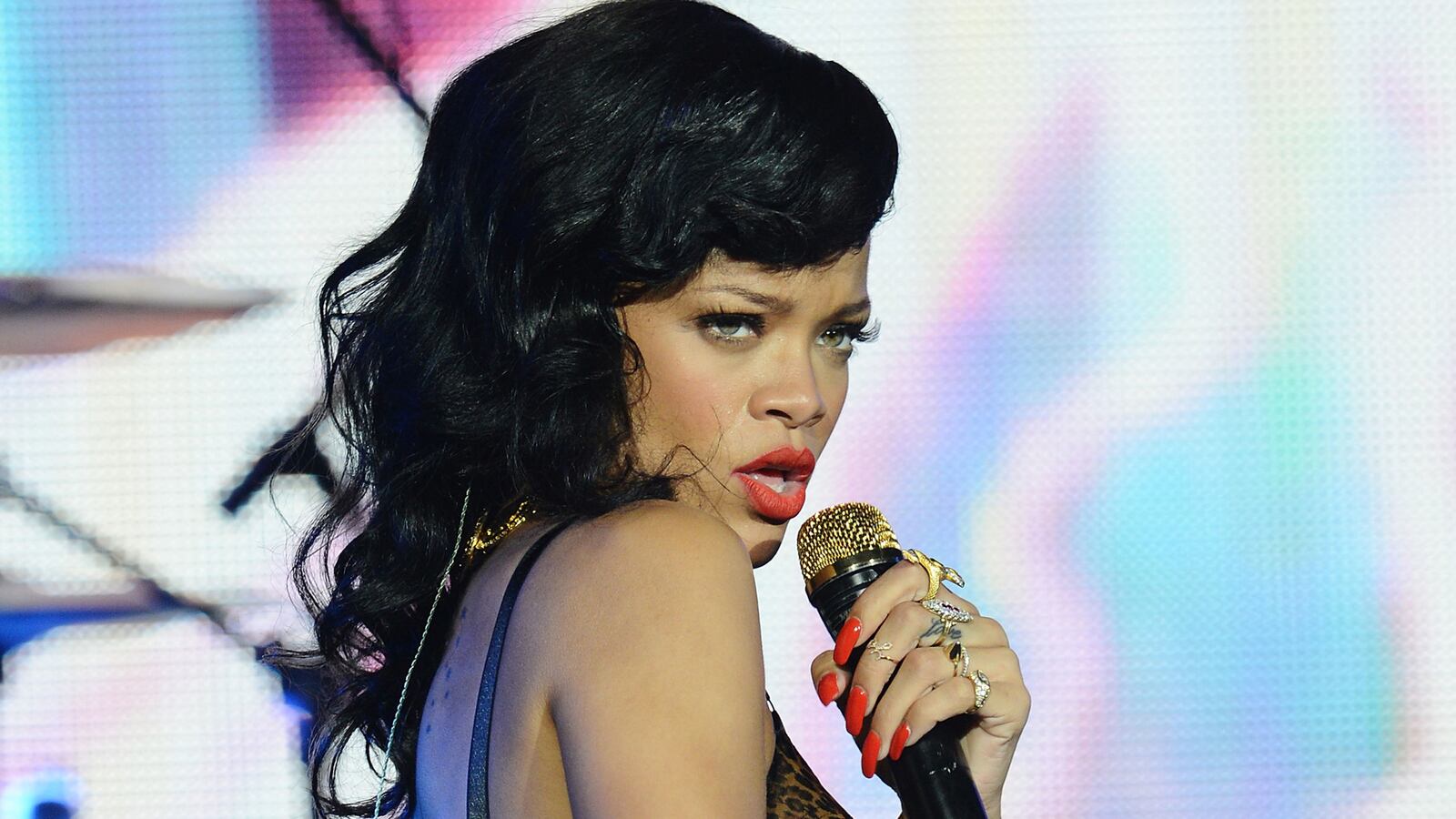The girls are not all right. They’re alternately preoccupied with twerking, disseminating selfies, or some other form of narcissistic behavior, and it’s all pop music’s fault. That will be the year 2013’s epitaph and its most common refrain. The hyperbolic concern is nothing new, of course, but the din intensified this year as we reckoned with Beyoncé’s self-mythologizing and Rihanna’s girl-gone ethos and, well, Miley’s tongue.

The stream of tweets, trending topics, and think pieces was endless and largely forgotten, but the lasting takeaway is that, decades after Helen Reddy and Janet Jackson and Madonna, we are still grappling with how to properly deal with collective social anxiety about gender, sexuality, misogyny, and how all three are represented—or misrepresented, as the case may be—in pop culture. The questions went largely unresolved, but beyond the ephemera, conversations about misogyny in pop culture necessarily surfaced conversations about feminism among pop stars.
Things came to a head when Miley’s sexual self-expression qua empowerment took a turn for the unrelenting, and when Sinead O’Connor’s perhaps well-intentioned but ultimately patronizing attempt at advice sparked a nasty feud between the two. But before and since that incident, 2013 has been a banner year for watching the world’s biggest female pop stars wrestle publicly with their notions of womanhood and sisterhood: Beyoncé named her world tour after her husband; Rihanna unapologetically took back Chris Brown, broke up with him, and then seemingly redefined a woman-centric world for herself; Lorde bashed Selena Gomez’s feminist cred; Lily Allen bucked normalized beauty standards, though unfortunately at the expense of black women; Lady Gaga addressed her struggles with body image; Nicki Minaj spoke out continuously against misogyny in the music industry to little acclaim.
Rihanna, known as much for her relationship with Chris Brown and for being a "bad girl" as for her music, rose to the occasion this year. Among other things, she challenged the heterosexual male gaze by cultivating art and a persona—chiefly through Instagram—that is for and by women. On social media, her best friends Jenn and Melissa play the role of allies that loom larger than life, the three of them often dancing with and for one another without acknowledging neither the presence nor the absence of men, much like in the recently released video for “Pour It Up.” Whether or not Rihanna verbalizes it as such, it’s richly disruptive, as is her refusal to shrink to the persona of either Victim or Bitch.
Beyoncé, on the other hand, has historically defined her feminism as the dream of “having it all”: a duality between being a traditionally respectable woman (sexy but not sexual, bold but not arrogant) and a career powerhouse who is in charge of her image and business. When she began stepping out of character this year, in part by releasing a song premised on a boast in which she repeats the lyric "bow down bitches," criticisms were lobbed at her feminist credibility. (Among other things, the attacks on Rihanna and Beyoncé reflect the intrinsic, concrete links between gender and race.)
So who is America’s Next Top Feminist? To hear the public tell it, only one can win. In reality, however, each of these women, and a bevy more, has muddied the consensus about the proper way to be a feminist as a public figure whose voice is valuable to millions of people. They’ve been an important but too-often ignored reminder that female pop stars are a broad-stroked simulacrum of their audiences: there are as many ways for them to be feminist as there are to write a hit song.
To focus on whether Taylor Swift is correct in choosing to counter the male gaze by shimmying away from it or whether Beyoncé, in contrast, is right to look it dead in the eye is misdirection. Cleaving to the notion of a singular feminism is essentially reductive, an extension of the marginalization of women through the messaging that there are only a few acceptable mode of beings. It is an internalization of that myth that may have led Lorde to pettily criticize Selena Gomez for being “passive” in her latest single “Come and Get It”—in which a palpably more grown-up Gomez tells a lover she's waiting for him—and conclude that the former Disney starlet is therefore not a feminist. Or at least not a good one.
The public and media’s reaction to the differences between the major female pop stars’ senses of self and their visions of feminism has highlighted the sad fact that we want our pop stars the way we want our feminism: singular, easy, fundamentally self-affirming. To continually pit these women, and their worldviews, against one another is an irresponsible replication of the pitfalls of patriarchy on a grand scale that leaves room for only extreme binaries. In truth, they are all boldly defining their visions of a feminism that suits them based on lived histories and experiences; each is valid and each can be empowering, as the past year has shown.
The assumption that feminism comes in a neat, Xeroxable package is gravely outmoded and vacuous. Beyoncé is as much of a feminist as Rihanna who is as much of a feminist as Lorde who is as much of a feminist as Gaga and Nicki Minaj. To minimize the possibility of pluralism is to do a disservice not only to these women and to their art but also to those of us who often model our notions of self on them. There are six million ways to be a feminist: choose one.






